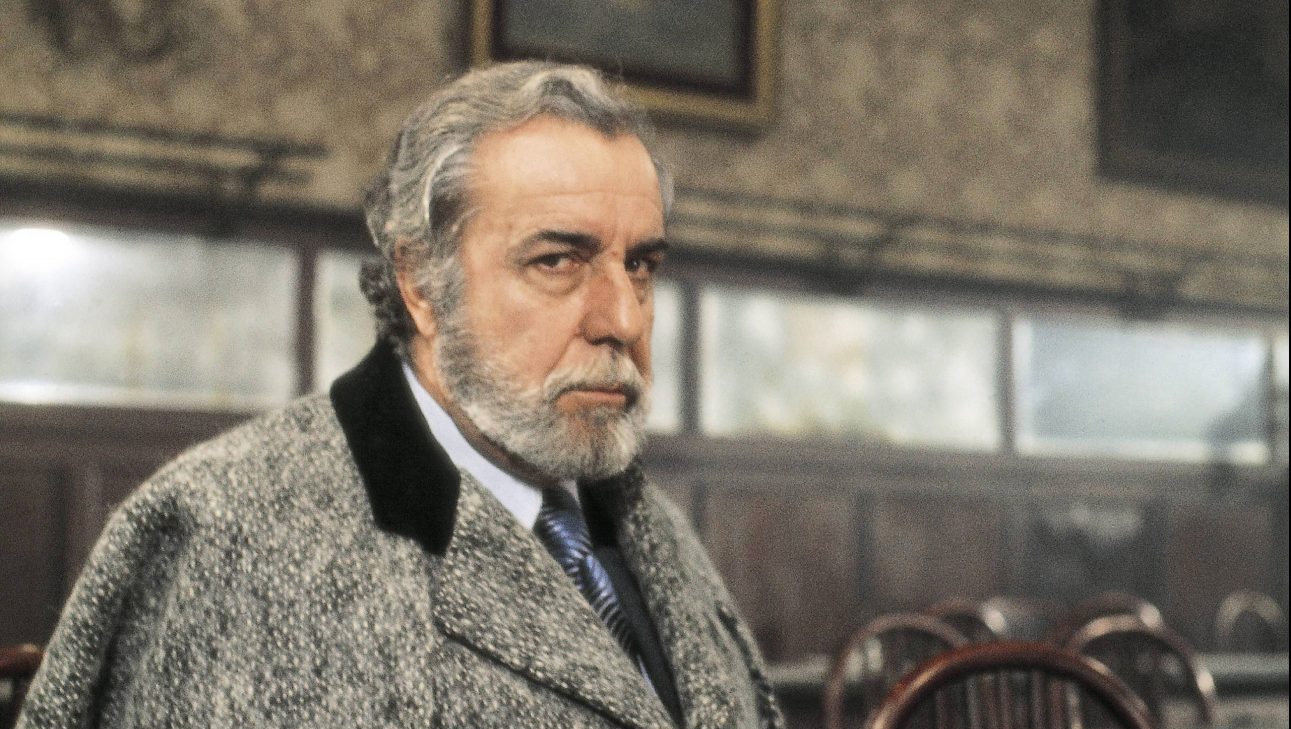The manner in which Fernando Rey entered the film industry will not appear in a career guidance manual anytime soon because, unusually for a screen actor, he was trying to disappear.
The son of a general in the republican army during the Spanish civil war, Rey had fought against Franco, been captured and imprisoned but managed to escape. He hid in Madrid for six months waiting out the end of the conflict, emerging to find his father sentenced to death – later commuted to life imprisonment – and his mother and sister practically destitute.
Before the conflict, Rey had been studying to be an architect, an option now closed to him as a known republican and son of a convicted criminal. Finding himself effectively the head of the household, Rey needed work to support the rest of the family – and found it in an unlikely place. “I saw an ad one day looking for film extras,” he said.
When he arrived at the casting he recognised among the throng other former republican soldiers with the same idea, attracted by the anonymity provided by numbers. Applying for jobs in factories they were a name, an individual, the subject of sideways looks from bosses and colleagues, the odd loaded question, the risk of dismissal a permanent danger, or worse in the case of someone whose family had been at the heart of the anti-Franco forces.
Being just a face in a crowd allowed Rey and his erstwhile colleagues to work free of scrutiny, through which they could also earn a decent living.
The Spanish film industry was booming at the dawn of the 1940s as historical epics were churned out to fit the fascist version of history, meaning extras were in constant demand. For Rey, “to be an extra, a face in a large crowd, was a way of not standing out”.
Before long his rich speaking voice earned him the odd line – which meant more money – while Franco’s insistence that foreign films be dubbed into Spanish opened up a lucrative side gig, notably as the Spanish voice of Laurence Olivier.
“Then an actor in a play got sick,” he recalled. “I rehearsed his part in two days with no experience and suddenly I was a theatrical actor.”
Yet Rey harboured no serious ambition to pursue a career in acting. Like many Spaniards he assumed the Franco regime wouldn’t last, that the dictator would soon be toppled and Spain would return to the equilibrium of a republic once again, allowing Rey to return to his studies. Until then, acting paid the bills.
“That feeling made me do things without a sense of responsibility,” he said. “I felt free because I kept telling myself, this is not my goal, my ambition is architecture.”
By the late 1940s, with the Franco regime digging in despite the defeat of fascism elsewhere in Europe, Rey began increasingly to realise that his future might be in acting after all. When postwar economic hardship reduced the number of films being made in Spain he decided to try his luck in South America where, unbeknown to him, his performance as King Philip I in the 1948 medieval blockbuster Locura de amor (The Madness of Love) had made him a celebrity.
“When I arrived in Mexico I was greeted like Robert Redford,” he recalled in 1973 of the moment his architectural ambitions finally evaporated.
That spell in South America would change Rey’s life in two important ways. He met Mabel Karr, the Argentinian woman who would become his wife, and he met Luis Buñuel, the director with whom he would make some of the best films of his career. This was despite the genesis of their meeting being a little unorthodox.
“I made a film in Mexico and Buñuel was staying there,” Rey recalled. “He went to see the rushes and I was dead in the scene he saw, a corpse. He never saw me act, but said: ‘how fantastic is that actor?’”
Their first collaboration was Buñuel’s 1961 film Viridiana. Rey played a widower who invites his niece to stay on his remote farm before she takes holy orders, only to be overwhelmed by feelings of lust and grief, not least when he persuades Viridiana to wear his late wife’s wedding dress.
The film was banned in Spain for its controversial portrayal of the Catholic Church but for the 43-year-old actor it brought international recognition after more than a decade of parochial, often cheesy Spanish historical melodramas.
“I started thinking differently from that moment,” he said of Viridiana, which won the Palme d’Or at Cannes.
“I made films with Buñuel with the idea that I was making something important.”
Viridiana prompted offers from all over the world. The 1960s became a busy decade in which Rey worked with directors ranging from Roger Vadim to Orson Welles and appeared in everything from sword-and-sandal Roman epics to spaghetti westerns, including two sequels to The Magnificent Seven.
In 1970 he teamed up again with Buñuel to make Tristana, in which he again played a lecherous old man – one obituary would describe Rey as “the embodiment of Buñuel’s libido” – but his biggest international hit came the following year when he played Popeye Doyle’s nemesis, the drug baron Alain Charnier, in The French Connection.
For all Rey’s impressive reputation, the part of Charnier was actually given to him in error. Director William Friedkin had wanted to cast Francisco Rabal but could not remember his name. Asking an intermediary to secure that well-known Spanish actor who’d worked with Buñuel, Friedkin was startled when Rey walked through arrivals at La Guardia airport instead of Rabal.
When it turned out Rabal was unavailable anyway, not to mention that he spoke neither English nor French, Rey was given the role and produced one of the best performances of his career.
The death of Franco in 1975 triggered the demise of Spain’s fascist regime and in 1979 the end Rey had anticipated since the early 1940s finally came. The legacy of the civil war still cast a shadow over his life, however, even if it did lead to one of European cinema’s most illustrious careers.
“To come from a war, a terrible war between brothers, you are different, stronger, more prepared,” he said. “In a way it destroys you. But in a way, it puts the pieces back together in a different identity.”
Part of that legacy was how it took until middle age for Rey first to accept his destiny as an actor, then his role in Viridiana to consider himself a success.
“Perhaps it’s a pity that success came late in my life,” he said. “It might have been better to know success while young, when your life is all before you to enjoy it.
“Still, adversity too teaches you how to enjoy life: like a cup of coffee, sip by sip.”




